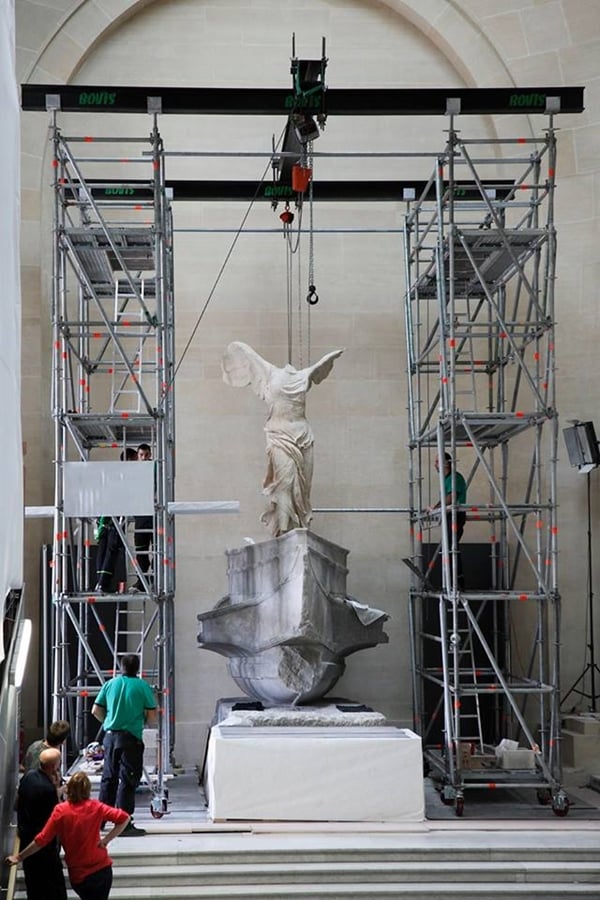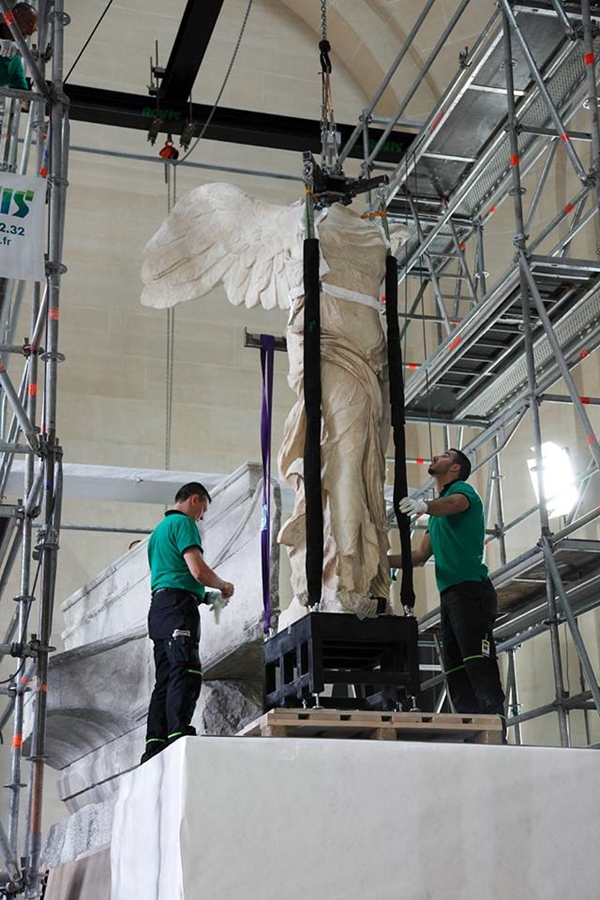Art & Exhibitions
Victory of Samothrace Is Back on View at the Louvre

Photo: Antoine Mongodin/Musée du Louvre.

Benjamin Sutton

The iconic Winged Victory of Samothrace, the Louvre‘s other star attraction, has been reinstalled following a 10-month restoration—partially crowd-funded through some 6,700 micro-donations adding up to €1 million ($1.36 million)—and goes on public view again on July 12, Le Figaro reports. The sculpture, which dates from circa 190 BCE and depicts the winged goddess of victory standing on the prow of a ship, occupies the landing of a grand staircase through which the lion’s share of the Louvre’s seven million annual visitors pass.
The 18-foot-tall, 30-ton statue was scrubbed clean of both dirt and yellowing paints and varnishes applied during earlier conservation efforts. The boat section that serves as its base was disassembled into its 23 blocks of Gray Lartos marble, cleaned, and then reassembled. A metal bar that had been affixed to the sculpture to support it in the 1930s was also removed as part of the restoration.

Reinstalling The Winged Victory of Samothrace at the Louvre.
Photo: Antoine Mongodin/Musée du Louvre.
The total cost of the restoration came out to €5 million ($6.8 million), €2.3 million of which came from Nippon Television Holdings, with the crowd-funded €1 million and donations from Fimalac and the Bank of America Merrill Lynch Art Conservation Project covering the rest of the costs.
The object of the restoration project was to return the famous statue to the conditions in which it was found in 1863 on the tiny Greek island of Samothrace in the Aegean Sea. Although, as Ludovic Laugier from the Louvre’s department of Greek, Etruscan, and Roman antiquities tells Le Figaro, the object was never to return it to its second century BCE color palette.
“Originally,” Laugier remarked, “the wings were a also a hue of blue.”